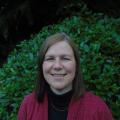
BY leaving areas of longer grass and supporting the creation of wildflower meadows in our parks and community greenspaces, we are helping nature to thrive.
We are taking action to reverse the decline of pollinators and insect species.
Across Glasgow, there are grassland sites that are providing habitats for a wide range of wildflowers and other native planting. These spaces are protected by less frequent grass cutting.
They are being cultivated with wildflower seeds alongside small trees and hedgerows to support wildlife. Wildflowers grow best in areas of low-quality soil, where it is open and sunny.
Flowering bulbs and wildflowers can bring benefits to our local bees, moths and butterflies as well as enhance the natural environment of our communities.
The wildflower blossom can provide food for bees and other insects in the form of nectar and pollen. The fruits and berries are needed for feeding birds when food supplies are limited.
The small trees and shrubs that are good for blossom and berries include Rowan, Crab Apple, Elder, Blackthorn and Hawthorn.
Bees, birds and butterflies are not only beautiful but are useful for pest control as well as pollination. Bees help pollinate flowers and food. Frogs eat slugs. Birds and ladybirds help keep aphids at bay.
We can all help nature by supporting work within our local community to introduce wildflowers to gardens, community green spaces and parks.
Even the smallest wildflower sites add up to a significant proportion of our land which, if managed for wildlife, can deliver enormous gains to nature.
These wildflower areas come back year after year to support efforts to protect wildlife, tackle pollution and lock away carbon below ground.
This month, residents with gardens and people managing greenspaces can get involved with No Mow May and support wild plants to grow.
If you do not have your own lawn or green space, you can link up with neighbours with gardens, local schools, businesses and community organisations to support the development of No Mow May streets.
There are volunteering programmes promoted by Plantlife which help to support native wildflowers for parks, green spaces and community projects.
If you have outdoor space but no lawn, you can encourage wildlife with a pot or window box.
There are native seed mixes you can sprinkle into pots which will attract pollinators like bees and butterflies.
During May, local councillors can encourage green space management for the benefit of biodiversity and nature conservation.
As part of our climate plan, we can promote local native plants to be used to reduce our carbon footprint.
In our efforts to support public health and wellbeing, we can help people to connect with nature to boost mental and physical wellbeing.
We need to create a more climate resilient city and this involves the creation of more wildflower meadows and wildlife-rich greenspaces.
By giving our support to No Mow May, we help provide vital food and shelter for a wide variety of small birds, butterflies, bees and other species at risk of extinction across Glasgow



Comments & Moderation
Readers’ comments: You are personally liable for the content of any comments you upload to this website, so please act responsibly. We do not pre-moderate or monitor readers’ comments appearing on our websites, but we do post-moderate in response to complaints we receive or otherwise when a potential problem comes to our attention. You can make a complaint by using the ‘report this post’ link . We may then apply our discretion under the user terms to amend or delete comments.
Post moderation is undertaken full-time 9am-6pm on weekdays, and on a part-time basis outwith those hours.
Read the rules hereLast Updated:
Report this comment Cancel